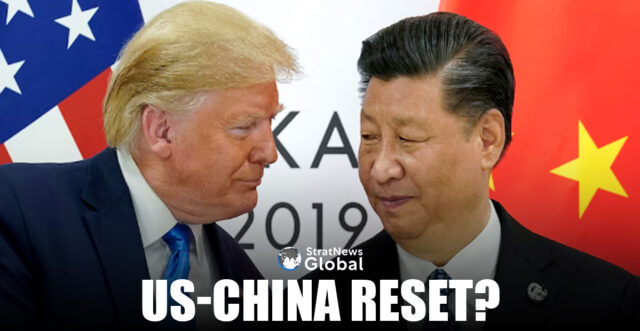On his first day back at the White House, Donald Trump surprised many by postponing tariffs on China and refraining from labelling it a threat, hinting at the possibility of a thaw in relations as both nations seek mutual benefit rather than escalating tensions.
In a speech after his inauguration, the U.S. president refrained from mentioning China, its erstwhile opponent in a previous trade war, even as he said tariffs would make the United States “rich as hell”, leaving the door open for fresh negotiations with the world’s second-largest economy.
TikTok Ban Delayed
Trump also delayed the ban on China-owned short-video app TikTok, but in an unprecedented move, suggested that the U.S. should be a half owner of TikTok’s U.S. business in return for keeping the app alive, saying the company could be worth hundreds of billions of dollars.
As Trump begins his second term, Beijing and Washington find themselves needing a new roadmap to advance their goals and guard their interests, analysts say, although previously unresolved issues such as the 2020 trade deal could jar the currently cordial undertones.
Relations During First Term
During his first term, Trump quickly struck up relations with China’s Xi Jinping. Both men lavishly hosted each other in Florida and Beijing. But that did not stop ties deteriorating into a trade war that unleashed a series of tit-for-tat tariffs and uprooted global supply chains.
Neither side appears interested in picking up where they left off, however, with signs pointing to the negotiation table instead.
“Trump wants a deal. Otherwise, he would have shot up China on day one,” said Alicia Garcia Herrero, chief economist for the Asia Pacific at Natixis.
“He ran a campaign which was very aggressive towards China, and then on day one shied away from it.”
“China wins because their tariffs are going to be limited. Because they are going to offer Trump whatever he needs to do a deal. Financial services? The renminbi? You want a stronger renminbi? Sure, perhaps on a temporary basis,” she added.
Growing Vulnerabilities
Another trade war would find China much more vulnerable than when Trump first raised tariffs in 2018, as it grapples with a deep property crisis, weak domestic demand and 16% youth unemployment, among other challenges.
Chinese stocks were volatile on Tuesday as investors struggled to make sense of Trump’s plans for China.
Last week, Xi and Trump agreed on a phone call to create a strategic communication channel on “major issues”.
The 47th U.S. president also said he could travel to China as soon as this year.
(With inputs from Reuters)





